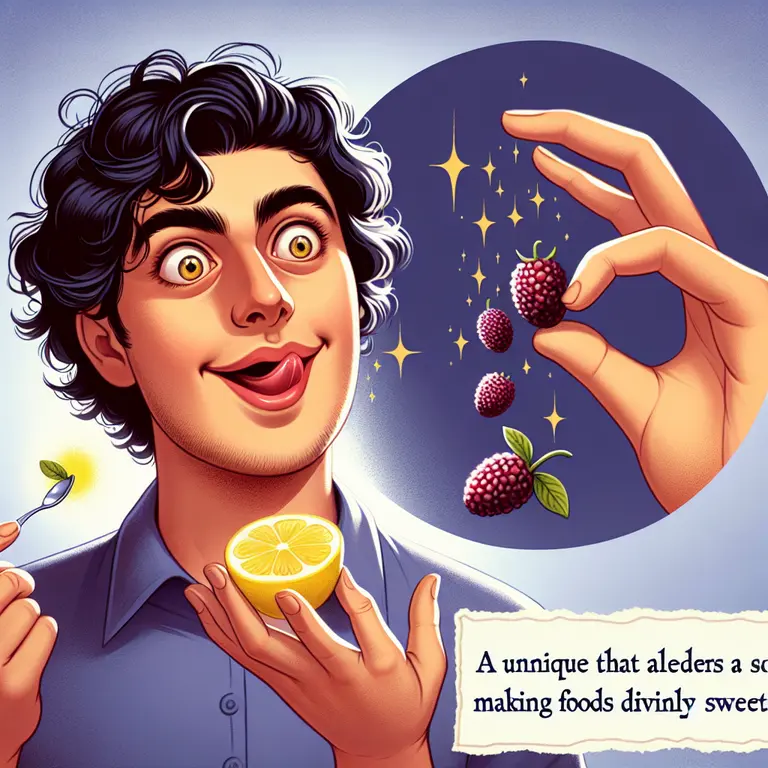The Magic of the Miracle Berry: A Flavor-Altering Fruit
A berry that changes your taste perception, making sour foods taste sweet.

Synsepalum dulcificum, also known as the Miracle Berry or the Miracle Fruit, is a unique fruit endemic to West Africa. This fruit's uniqueness lies in its remarkable ability to modify the consumer's taste sensations: after eating it, sour foods taste sweet. Local Indigenous populations had known this incredible transformational power since at least the 18th century when European explorer Chevalier des Marchais first documented it.
Des Marchais noted that local tribes picked and chewed these berries before meals. He tried them himself and found they had a ‘bland yet slightly sweet' flavor. However, they caused a remarkable confounding of his usual sense of taste for a short time afterward. He watched in awe as villagers consumed acidic, bitter palm wine and treated it as if it were sugar water.
This happens because miraculin is found in ample quantities within the miracle fruit. It is not sweet but binds with the tongue’s taste buds, causing sour foods that taste later to send sweetness signals to the brain. Therefore, even if you bite into a slice of sour lemon after consuming a miracle berry, you will perceive it as unusually sweet! This effect lasts up to an hour or until you thoroughly wash your mouth.
Despite its intriguing properties and clear potential for applications (improving diet healthiness among diabetics and cancer patients whose chemotherapy treatments often make food unappetizing), the miracle berry remains relatively unknown. One reason could be the FDA's classification of it as a food additive rather than a recognized foodstuff in 1974; hence, it needs rigorous, expensive testing before mass commercial market entry could occur legally. Time Magazine cited allegations from former employees that competing established sweetener industries unfairly influenced this 1974 decision - a regrettable example of potential corporate vested interests overriding social benefit ( see 'The Pursuit of Sweet,' Time magazine, Monday, Jan. 26, 1970).
Sources:
https://www.sciencedirect.com/science/article/pii/S095816691630266X; https://content.time.com/time/subscriber/article/0,33009,942467-2,00.html
Category: Accidental Discoveries